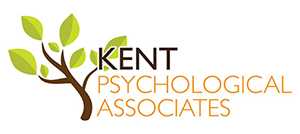Through his research, Dr. Gottman found what successful couples did well that set them up for success. He referred to such couples as the “masters” of relationships, who behaved and responded with one another in effective ways.
Therefore, as part of identifying these traits, Dr Gottman was also able to determine what behaviors led to relationship demise. He termed couples displaying these traits as the “disasters.” The “disasters” engaged in behaviors that Gottman refers to as The Four Horsemen. These 4 components lead to relationship demise.
The Four Horsemen
Criticism, Defensiveness, Contempt, and Stonewalling were the four behaviors consistently identified as those that lead to the deterioration of a relationship.
Criticism
The first horseman, criticism, is identified as labeling or attacking another’s personality or character.
For example, husband says to wife, “You are always making us late!”
Defensiveness
Defensiveness is defined as victimizing yourself to ward off perceived attack and avoid blame.
Wife responds to husband, “Well maybe if you ever helped me get the kids ready, I wouldn’t be late!”
Contempt
Contempt is the strongest indicator of relationship breakdown. In fact, it is this behavior that enabled Dr. Gottman to predict divorce with a 92% accuracy rate. By measuring how much contempt is used in a 10 minute conflict conversation, he could determine which couples would break-up and which would stay together. He repeated this study with the same results 7 times!
Contempt is characterized by attacking one’s sense of self with the intent to insult or abuse – such as sarcasm, eye rolling.
Wife responds to husband, *Sigh* “Pshht! As if they care if you are late. They are probably glad they don’t have to spend as much time with you.”
Stonewalling
Stonewalling occurs when a person withdraws to avoid conflict and conveys disapproval, distance, and separation.
Husband says nothing and refuses to speak to wife in the car or acknowledge her at their friend’s house that evening.
Antidotes of the Four Horsemen
Even the masters engage in the four horsemen from time to time. However, their relationships not only survived, but thrived. The couple’s ability to repair or reconcile with one another made this possible.
These couples implemented the antidotes to the four horseman and recognized when and how to repair. Gottman defined a repair as “any statement or action — silly or otherwise — that prevents negativity from escalating out of control.” The “masters” recognized the need for repairs and used them often.
When using the Gottman Method with a couple in marriage counseling, the clinician will intervene at times the four horsemen are present. As part of the process, they teach the couple how to engage in the antidote of this behavior. The clinician guides the couple in effective communication strategies while implementing these antidotes. Therefore, couples are able to accurately express their emotions and clarify their needs.
Criticism
Softened Start-Up – Identify your feelings using an “I” statement and express a positive need.
Husband says to wife “I feel really anxious when we are rushing to get out the door. I don’t want to have others waiting on us. Do you think there is a better solution for us to manage our time better”
Notice the husband is using “I” and “we” statements as opposed to “you” statements. He is describing what is happening rather than labeling his wife.
Defensiveness
Take Responsibility – Accept your partner’s perspective and offer an apology for any wrongdoing.
Wife says to husband “Yes I know, I need to learn how to manage my time better myself for sure. If I could get help with getting the kids together and out the door, I could gather any last minute things that often has me running around. That would be really helpful.”
Here, the wife takes responsibility for her lack of time management, while expressing a need for help from her husband. Hence, mitigating the situation.
Contempt
Build a Culture of Appreciation – Remind yourself of your partner’s positive qualities and find gratitude for positive actions.
The wife feels frustrated by her husband’s initial critical response. However, she recognizes his overall patience for her lack of time management and remembered that he made dinner that night.
The acknowledgement of her husband’s positive attributes enables the wife to respond more effectively. This is due to her viewing her husband in a more positive light.
Stonewalling
Physiological Self-Soothing – Take a break and spend that time doing something soothing and distracting.
In many cases couples who stonewall are often flooded or overwhelmed. Therefore, this is not a time to communicate. Often when flooded, your executive functioning skills, such as the ability to reason or rationalize are lost.
The husband who was responded to with contempt, would say to his wife “Listen, I am feeling overwhelmed right now and I need a moment to get myself settled. I think it would be a good idea if we just decompressed and listened to some music on the way to our friends house and revisit this later when we have more time to discuss this.”
Benefits of the Gottman Method
The above skills are only a small portion of the strategies taught and implemented in a couples counseling session using the Gottman Method. Couples report the individualized treatment plan that is offered with this method is highly beneficial. The thorough assessment process is advantageous in identifying the precise areas a couple needs to work on. Therefore, the clinician is able to focus on the components of the relationship that contribute to their problems.
Think for a moment if you have a medical condition that has been misdiagnosed. How much time, money, and effort was put into treating that condition just to find that all along the wrong thing was being treated. The Gottman Method and the assessment process involved helps to avoid this issue when you engage in couples counseling.
If you are noticing the four horsemen present in your relationship, it may be time to seek help. Contact our office or visit our website to get scheduled with one of our skilled clinicians. You too can learn the evidence-based skills that lead to happy and successful relationships.

